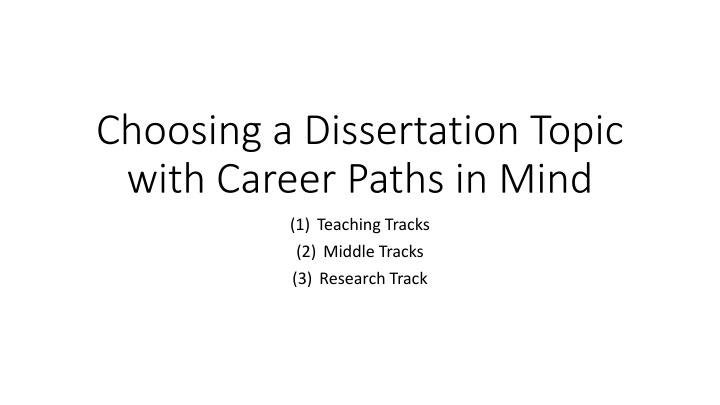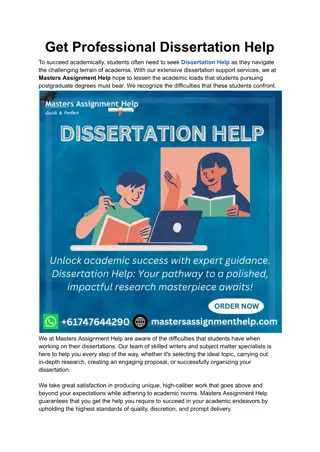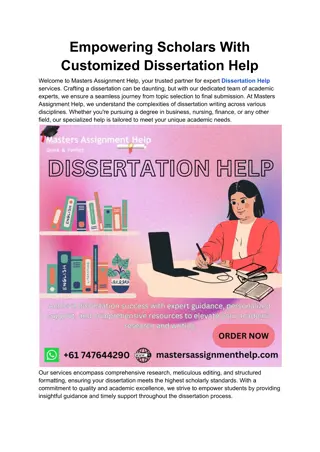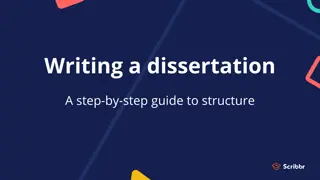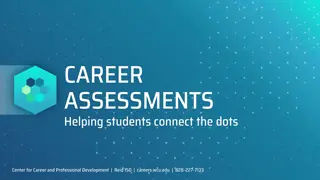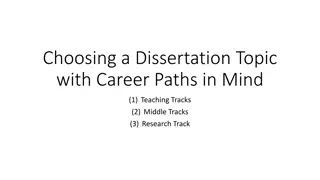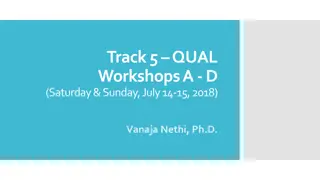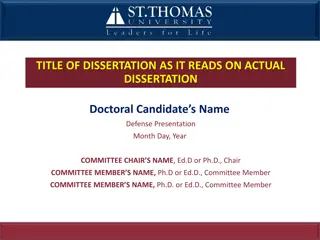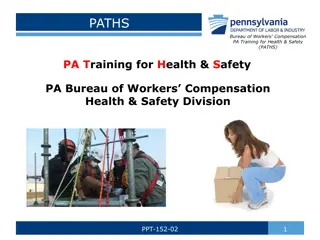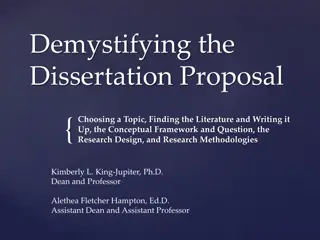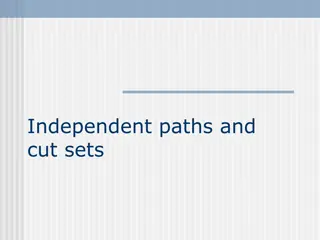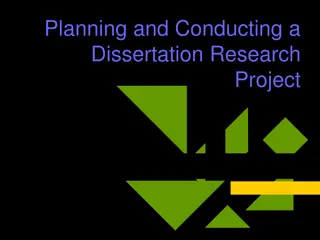Navigating Dissertation Topics for Academic Career Paths
To align your dissertation with your career path, consider the teaching, middle, and research tracks. Teaching tracks focus on publishable topics related to desired fields. Middle tracks require publications in reputable journals, showcasing both research and teaching skills. Research tracks emphasize publishing in top-tier journals with advisor guidance.
Download Presentation

Please find below an Image/Link to download the presentation.
The content on the website is provided AS IS for your information and personal use only. It may not be sold, licensed, or shared on other websites without obtaining consent from the author.If you encounter any issues during the download, it is possible that the publisher has removed the file from their server.
You are allowed to download the files provided on this website for personal or commercial use, subject to the condition that they are used lawfully. All files are the property of their respective owners.
The content on the website is provided AS IS for your information and personal use only. It may not be sold, licensed, or shared on other websites without obtaining consent from the author.
E N D
Presentation Transcript
Choosing a Dissertation Topic with Career Paths in Mind (1) Teaching Tracks (2) Middle Tracks (3) Research Track
The Teaching Track The teaching track at 4 year colleges, these days, still requires at least a bit of research to get hired and tenure, although teaching skills (SEIs) and service play a large role in tenure and promotion at such schools. For this track, the topic(s) that you choose should be publishable in a C or better journal and should generally be accessible and related to a field that you want to teach courses in and in which courses actually are taught. Examples of jobs in which teaching is central to one s career and research less so include liberal arts colleges (many of which are in trouble these days from declining enrollments) and regional campuses of state universities. These are the most common places that graduates start their career in. When you interview such schools do not be immodest about your teaching skills, but you may be so about your research
The Teaching Track Dissertation topics of interest to vary to some extent with the teaching fields that they are trying to cover (as true of the other tracks as well) But you have a bit more freedom to choose topics that are a bit out of the mainstream as part of your dissertation for this track, as long as most of it (and your other research) is of a variety that will make you a better teacher for the courses that they need to have taught. For one of my on campus interviews at a liberal arts college I had to present a bit of my research to a room full of professors and students, both of whom had to be pleased to get a job offer. Other teaching track jobs at Junior Colleges and as teaching faculty at research oriented universities exist, and also tend to place little or no weight on research.
The Intermediate Track For the intermediate track, both research and teaching skills are of interest to those doing the hiring. In this case, essentially all of your dissertation chapters should be published in C or better journals BEFORE your hit the job market. Those publications will be the best signal that prospective hiring committees can use to assess your skills at and interest in research. The individual chapters should demonstrate a command of the subject area in which they need classes taught, but it is usually more important that the be published (or forthcoming) than that they exactly fit the courses that they need taught.
The Intermediate Track Research topics, thus, should be adopted with publication in C or preferably better journals in mind. For this, you should consult with your advisor, who should have significant experience publishing in the area that you want to focus on. (Very few students have a good intuition about this, for most students it takes a lot of practice to understand what journal editors and reviewers are looking for.) I generally suggest writing a series of papers in a related area, because this reduces the amount of the literature that you have to master. The topic chosen should be one that universities offer undergraduate and graduate courses in or which would help to deepen such a course in related areas. It should also be an area that you are interested in, since you ll probably be working in it for several years. But, again, it is most important that it generate publishable papers. Again your dissertation committee should be consulted about this. As a hedge, one of those papers might be teachable in the sense that it would add more or less directly to teaching a specific undergraduate course.
The Research Track The research track is the most difficult to get a job in from WVU or similarly ranked universities. To get a job in a department that values research more than other aspects of careers in academia is tough even for graduates of top 50 departments. To do so, you ll need to publish in B or better journals both from your dissertation and in other research. Ideally, you would have an A or A+ publication BEFORE you hit the job market. Generally more is better. This is not easy and even experienced researchers struggle to make this happen. But it is not impossible, and a paper that fails to make it in a n A journal may make it into a very good B journal and be taken seriously by the departments in which you are seeking jobs. Again, though, departments need courses to be taught and so your research should signal prospective departments that you are knowledgeable in the fields that they need taught in this case, so that you might teach a graduate course in the fields that they need to cover.
The Research Track Often the best way to get an A publication is to become a coauthor with members of you dissertation committee. Your value added on such projects is often what might be called skut work meaning time intensive work putting data sets together and doing a good deal of the estimation and preparation of tables. Much of the writing (and suggestions for data and estimation methods) will come from your senior coauthor. These days it matters less that you write a solo piece during your dissertation phase, although that is still a bit valued by some departments.
Choosing Dissertation Topics and Career Path The point of all this is to think seriously about your dissertation. Don t think of it as simply jumping through another hoop to graduate. You should do this because the choice of a dissertation will have a significant effect on your future career much more than your grades in graduate or undergraduate courses. It is NOT just a hoop that students have to jump through but a major signal to prospective employers of your interests, skills, and potential. Other things influence your job prospects as well such as teaching evaluations and prizes and the networks of your dissertation committee, but none is really as important as your dissertation.
Non-Academic Careers Efforts to find non-academic jobs are usually similar to those required for research jobs in academia. Consulting firms and government jobs are interested in your applied econometric skills and also whether you know anything about the types of problems that they would like you to work on. Once you land such a job, there is a sense in which you are under less pressure to publish, but you are still supposed to contribute. Jobs at think tanks are interested in your communication skills and ideological orientation at least as much or more than your research skills. In both cases, dissertation topics and methods will be important signals for prospective employers.
